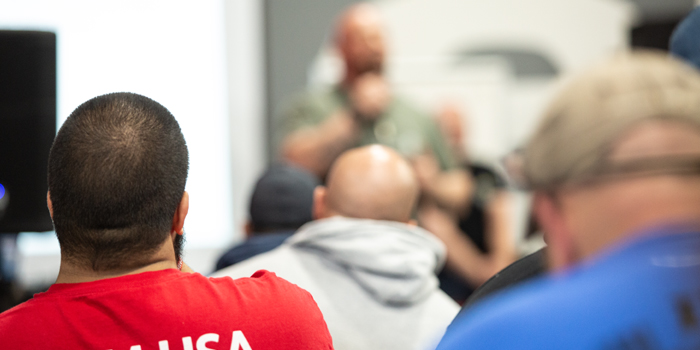
Back in 2003, I discovered elitefts when I was a high school senior who just wanted to get stronger for football.
In 2011, I took my first job as a high school strength coach. Again, I turned to elitefts as my go-to resource to put together training programs for my athletes with a lot of 5/3/1 with a splash of conjugate. It was also then that I told myself that I would one day have a column on this site.
RECENT: Conjugate Sequence System: General Physical Preparedness and the Yearly Plan
In December 2012, one of the first questions JL Holdsworth asked me when I interviewed for The Spot Athletics was if I knew what elitefts was. Of course I did; my first article was published in January 2012.
In 2017, I was asked to have a column and join the team. It’s now 2019, and for 16 years, elitefts has been an integral part of my growth and development as a coach.
When I first learned what elitefts strives to live by, it was something that resonated with me. It was something I truly believed in. Something to this day I strive to live my life by. A code of ethics, you could say.
Live, learn, and pass on.
Living and learning are extremely important in the development of a coach and person, but lately, passing on has become lost in our quest in making this field better. I think that as a coach, it’s one of the most important things we can do. Something Mark Watts instilled in me when I first started coaching was whenever I was working with a coach, I should give that coach everything I had. My intentions should always be to make them a better coach than me.
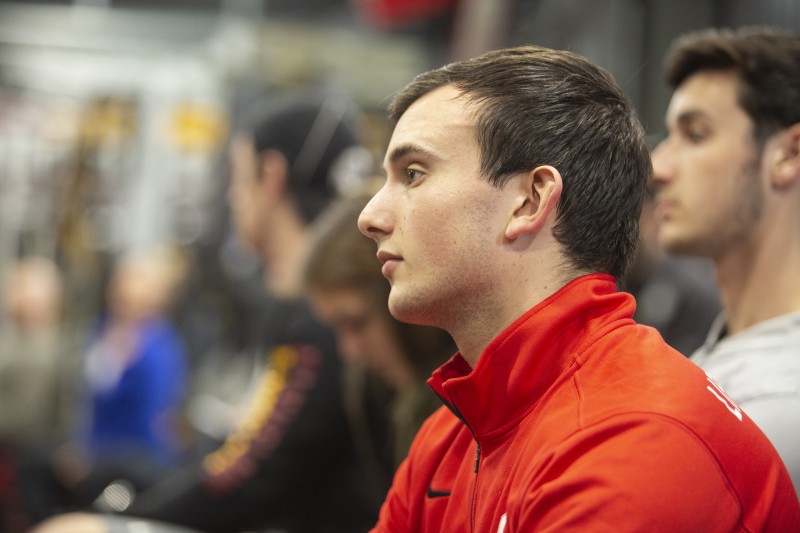
After Saturday’s round tables at the Strong(er) Sports Training and Success Summit ended, we headed over to dinner. Tables of different sizes were scattered throughout the event. All of us sat surrounded by people, many of whom we’ve never met before, who instantly felt like family. We heard stories about why certain people don’t like strawberries and others describing their first visit to a gentlemen's club. We even got to celebrate the birthday of the baby of the family (Happy birthday, Yessie). Keyword: family.
While sitting at the table with Casey and a few others, I looked to my left and saw Dave, JL, and Alwyn sitting together. I then looked back around the room to see every table in that room full of people. I said to myself, “Wow, this is all here because 20 years ago, Dave started giving away information for free.” If you want the whole story, read it here.
This is one big family.
Lately, though, I’ve noticed the egos of a lot of coaches, many of whom are highly visible on social media with a lot of young coaches looking up to them, telling other coaches to be careful about whom they give their time to. I remember as a young coach, one of the hardest things for me to do was reach out to an experienced coach and talk shop, pick their brain, and ask them all the questions I had, and then waiting, just waiting for a response. Many coaches didn’t respond, and I remember those coaches, trust me.
But those who did are the ones I’ve become life-long colleagues with. With the increase of social media, coaches think they are above others because they put out some content or put a course on speed training out. This isn’t to take away from the work they have put in, but who gave you the knowledge that you’re now making money on?
What’s the Point?
A few weeks ago, a tweet was making rounds about coaches who wanted to talk shop. The tweet and ensuing conversation were in regard to any coach who wanted to talk shop with you with the intentions of soaking up as much as they can, and then leaving you high and dry, and that you should be careful who you talk shop with. Essentially, these coaches are going to take your information for their own personal gain and you should respect your time and whom you give it to.
RELATED: Reminder: Stay Focused and In Your Own Lane
While you should respect your time, this part I agree with, the statement of coaches wanting to talk shop and trying to use you is a gross and unfair generalization of younger coaches who want to learn and get better. Is it really fair to pass judgment on someone for wanting what you have in your brain so they can become a better coach?
A close friend of mine said two important things to me recently, and it’s something coaches need to remember: We were once new coaches with questions, and for most coaches asking questions, it’s probably their first time asking. They are seeking you out to ask you a question on something that they don’t know. They respect you enough and want to learn that knowledge from you.
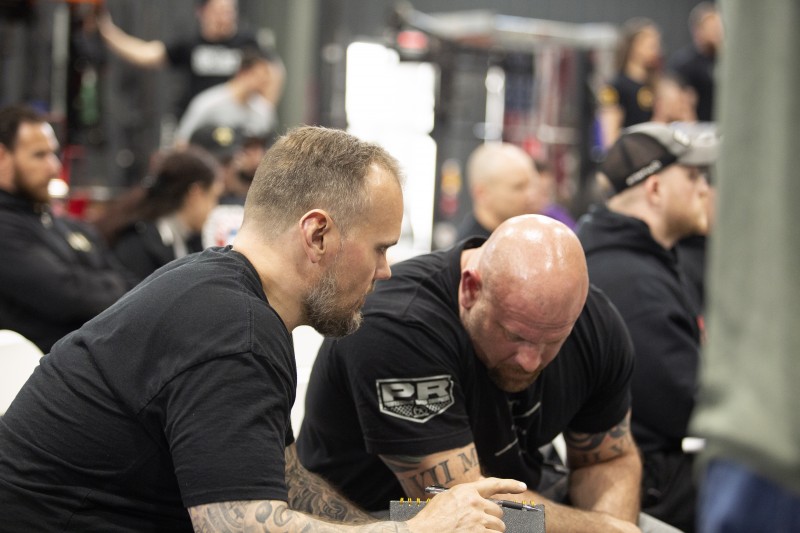
Personally, I take it as a compliment, and honestly, I feel it’s my duty to pass on what I’ve learned to the future generations. If I can help make one coach better, I’ve positively impacted a number of athletes in the long run — all because I helped one coach.
For example, Brett Bartholomew saved my life and my career. At a time when most of the coaches I thought were part of my close circle had turned their backs on me, he didn’t. I had never even met Brett prior to moving to Georgia. We had talked sparingly, as I had slid into his DMs way back when to pick his brain and ask him questions on how to become a better leader for the coaches I was working with.
Last year, while living in Atlanta, I had just about given up on coaching. I reached out to him; I don’t even remember why, and for some reason, someone who barely knew me was the only person who I felt had my back. During one of the most trying and difficult times of my adult life, he was there for me when I needed someone most. He took me in. Someone he never met. For months, I spent countless days with him. By doing that, he essentially saved my life. He’s the reason I’m still in this field. He’s a big reason as to why I’m still around.
All because I wanted to pick his brain.
So What?
Of course, there will be people who will pick your brain and leave you high and dry. My response is: so what?
While at the summit, Dave made a comment. I’m not exactly sure when he said it, but it was in regard to why he doesn’t sell his content. His response was along the lines of it was never really his to sell. All of this information has been passed on from generation to generation, so he felt that he owed it to those who came before him. How do you think you obtained the information that you are passing on to others?
The previously mentioned tweet was then retweeted and shared on various social platforms with many other coaches who were like, “Preach brother, fist emoji” and “This is straight fire emoji, fire emoji.” Coaches responded by telling other coaches to be careful with what you share on social media because it could end up on someone else's PowerPoint slide with them presenting themselves as the author.
Again, so what?
The majority of the stuff most of us present is other people’s thoughts and ideas. I know the majority of the stuff I teach has been passed on to me by the majority of my teammates here at elitefts. Work harder and step your game up. Bad coaches will get filtered out. Those with ill intentions will get filtered out. Don’t worry about them; instead, worry about making our field better. If someone’s stealing your ideas and making them their own, oh well, but don’t write a post about “stealing intellectual property” when you’re doing just that. You didn’t give the person credit; YOU took it from them for their ideas.
WATCH: Table Talk — The Future of Powerlifting with Dave Tate and Joe Sullivan
The coach who made the tweet has an article from a few years ago where they talked about all the coaches who have helped their career. The article encouraged coaches to find their mentors, telling them that if they would stop learning, they would stop growing, reminding us that we are more accessible than ever and to not be afraid to reach out to some of the great minds out there. This conflicts with their tweet that is basically saying it’s costly to give someone your time when they want to pick your brain. Times certainly have changed.
This is not the direction we need to be heading in this field. If I’m a young coach, and I see these coaches stating these things, I’m not going to want to reach out to any of them. It’s giving me a preconceived notion of the type of people they are and whom they associate with.
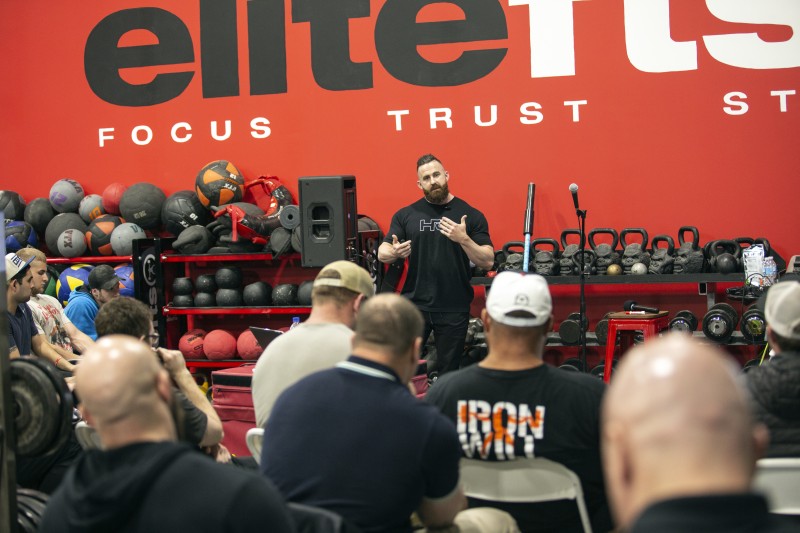
Is that fair? No, but neither is saying that coaches who want to talk shop have ill intentions. You’re giving off the precedent that coaches need to be careful of whom they ask questions. What happens if the coaches who helped you, your mentors, took the mindset of your “this person’s just another coach here to waste my time, take all of my ideas, and make them their own”?
Good thing they let you pick their brain.
What We Can Do About It
Now, a better conversation to have is how young coaches can make the most out of their interactions with other coaches. Teaching them not only the art of conversation but also how to have better conversations with coaches. Teach them that they should go into a conversation with the focus of sharing and giving, not just taking; that when we talk, we are exchanging information. This sends a much better message than “be careful of whom you talk shop with.” The former grows and makes the field better; the latter makes the field worse.
Also, get over yourself: your ideas aren’t ground-breaking. If you feel someone is going to steal your idea, then your idea isn’t that good. If you see someone and think, “Hey, that was my idea,” well, guess what? You should have capitalized on it sooner. There’s nothing new out here. You’ve merely found a different way to market and sell the same ideas that are already here. Similar to how sprinting is still sprinting, so it doesn’t matter how you market it. The only things that are new are the things you haven’t learned yet.
For me, it’s an honor for when a coach reaches out to pick my brain because everything I’ve learned has been passed on to me from past generations, and it’s my duty to pass it on to the future generations. I don’t ever expect a young coach to do anything for me in return for my time other than paying it forward and passing it on when their time comes. We all got to where we are with the help of others. It’s unfair to pass judgment on a coach for wanting to pick your brain. Take it as a compliment.
Dave Tate has been answering hundreds of questions for over 20 years and says it’s the best thing he’s ever done to increase brand awareness and grow his business. For this reason alone, there’s no other team I’d rather be a part of than elitefts. I realize I’m not a powerlifter, but it’s the motto, the culture, the family, and the lifestyle of live, learn, and pass on that’s changed my life.
READ MORE: Are You Ready for the Inevitable?
I encourage other coaches to do the same. Stop worrying about the one or two people who might leave you high and dry, and instead, focus on giving back as much as those mentors gave you.
Young coaches ask questions and pick the brains of other coaches. Older coaches guide and lead these young coaches and give them the tools they need to succeed in this field. If that’s a role you don’t want, then find a different field. We have enough issues as it is; now we have coaches saying know when to pay it forward and when not to.
Do you know when you should pay it forward and pass it on? Always.










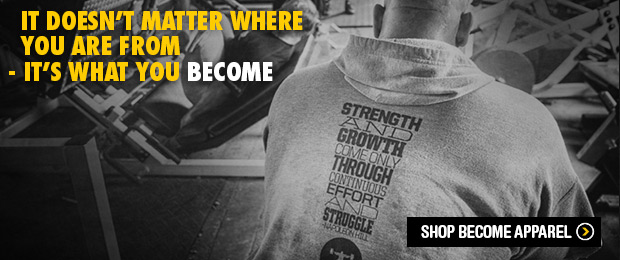
1 Comment